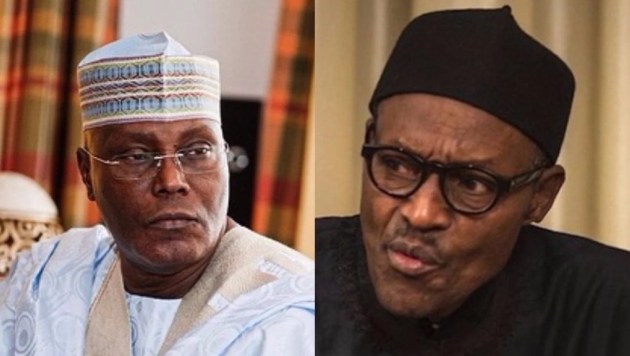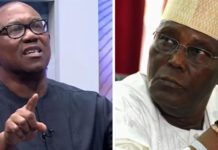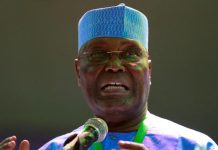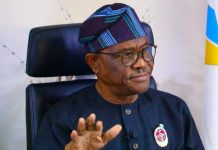As Nigeria, a nation with 84,004,084 registered voters, prepares for a close election in less than 24 hours, over footsoldiers of over 50 presidential candidates have laid out the policies they hope will lead them their candidates to victory.
The incumbent president Muhammadu Buhari, according to critics and reports, has fallen short of providing answers to Nigeria’s most pressing needs. In particular, unemployment, poverty and insecurity remain firmly in place.
In fact, Buhari has delivered on just seven of the 222 pledges he made as a candidate, according to the Centre for Democracy and Development, a Nigerian think-tank.
Unemployment has doubled and has surged to a record 23 per cent from 6.4 per cent at the end of 2014 – a particularly troubling statistic in a country where two-thirds of the population live below the poverty line.
In June 2018, CNN reported that Nigeria had overtaken India as the country with the largest number of people living in extreme poverty. About 87 million Nigerians, or half the population, live on less than $1.90 per day.
Also, the Boko Haram militants, a faction now affiliated with Islamic State, continue to wreak havoc in the northeast.
The security worries are not limited to the north-east. The impoverished north-western state of Zamfara has seen a sharp rise in kidnappings and killings linked to gangs of cattle rustlers, bandits and vigilantes while other parts of the country have experienced different levels of violence.

Kaduna has also gained prominence for its internecine conflicts, the latest of which claimed the lives of 130 people according to the state governor Nasir El-Rufai.
Meanwhile, Biafran separatist movement in the south-east and its the separatist leader, Nnamdi Kanu, are still fanning the embers of discord.
With dozens of rivals against Buhari, The Guardian has considered reporting what the three major candidates, Buhari of All Progressives Congress, Atiku Abubakar of People’s Democratic Party and Kingsley Moghalu of Young Progressive Party, are promising with regards tto he country’s unemployment and insecurity.
How do they intend to tackle unemployment?
Buhari, in his “next level” campaign manifestoes, highlighted five main ways to pursue bigger the jobs creation agenda.
To engage 1million N-Power graduates.
To train 10 million Nigerians in various skills.
Give 1 million farmers inputs and jobs via Anchor borrowers scheme.
Create 1.5 million jobs through livestock, beef, crop programmes.
Create 5 million jobs through mechanised agriculture.
Provide $500m innovation fund for Tech and creative sector to create 500,000 jobs.
Train 200,000 youths for outsourcing market in tech, services and entertainment.
Create 6 regional industrial parks and economic zones.
Feeding programme to provide 300, 000 extra jobs for vendors and farmers.
Abubakar popularly called Atiku on the other hand, listed out ways he intends to tackle the disturbing unemployment rate to “get Nigeria working again”.
Create up to 3 million self-and wage-paying employment opportunities in the private sector annually.
An estimated 1 million youth to benefit annually from an apprenticeship scheme in the informal sector.
Reduce unemployment and under-employment rate to a single digit by 2025.
Moghalu said he would work on a 1 trillion naira venture capitalist fund to trigger a productive and innovative economy to create jobs an estimate of about one million to two million jobs every year.
How do they intend to tackle insecurity?
Buhari says he will intensify the battle against militants loyal to Islamic State and Boko Haram, and provide the military with additional resources and tighten border security at all points of entry.
Also on the Farmer-Herder crisis, he said he will execute the second phase of the Farmer-Herder and National Livestock Policy to end the conflict. They will invest heavily to improve our intelligence and information sharing amongst the various security agencies,deploy adequate resources to mop up illegal arms circulation and will decentralise the funding of police operations.
Abubakar said he would promote jobs and development in the embattled states, which would deny militants support and make it harder for them to recruit members.
Moghalu promised to create a completely new 21st-century police force with 1.5 million men and women over a period of four years to take care of internal security, then the army will be professionalised to take care of external threats.
He promised to move the focus of the army to cross-border military intelligence and will seek external collaboration if necessary, to make sure that Nigerians are secured.







